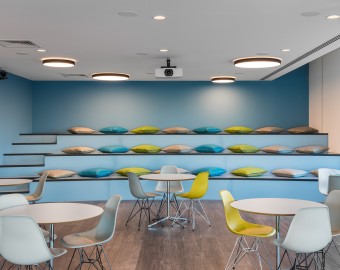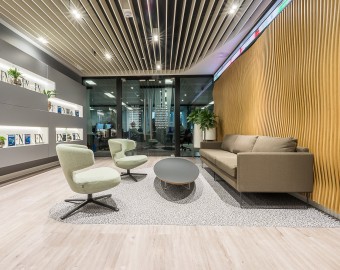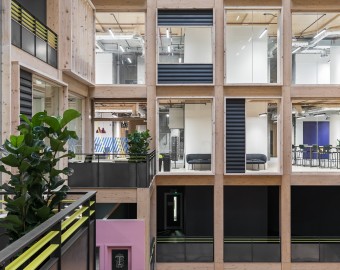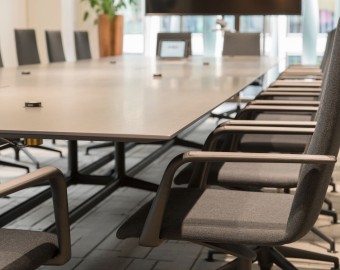Millennials and GenZers to set the office design agenda
There’s a theory that, between them, millennials and GenZers may well account for more than 80% of the active workforce by 2030. As well as having a significant impact on how we work, this will also require a change of approach to where we work and the environment in which we work.

In terms of profile, it’s accepted that millennials were born between 1981 and 1996, while GenZers were brought into the world between 1997 and 2012. They might have different perspectives on life and work, but there’s no doubt that together they’ll become the defining force for the workplace in the coming years.
So what does that mean for corporate leaders and office designers?
In essence it means that there’s a need to deliver the type of workplace that these influential groups will demand, not only to promote talent retention but also to maximise their efficiency and productivity. Like most generations, parents and predecessors are likely to have had a very different work life experience, but it seems these new go-getters are potentially looking for higher risk, higher reward careers in environments that suit their flexible and less predictable lifestyles. While this also sounds high-risk for employers, there appears to be an acceptance that millennials and GenZers are prepared to remain loyal and work hard, albeit in a different way to previous generations.
The drive among these groups seems to be less about money and material things, and more about how and where they work in order to deliver the best personal satisfaction and mental health. As a result, employers need to look at a variety of approaches and decide on the best way forward – not unilaterally, but in consultation with their teams. Current philosophies vary from fully working from home, a form of what’s now termed as ‘digital nomadism’, the four-day week, agile working and office based working – all options should be on the table and carefully evaluated and agreed.
The demands of a mobile and digitally empowered workforce will mean that flexible workplaces are the most sensible bet. Millennials and GenZers obviously need renumeration, but not necessarily solely in monetary form. Autonomy and trust are crucial components to ensure they deliver the results that are expected of them. A path for self-improvement and progression is also key with training, development and a strong company culture to underpin job satisfaction.
Considerations for office design that delivers
The assumption during and immediately after Covid was that the workplace had changed forever, but there’s a growing belief that millennials and GenZers do actually value their physical workspace, just in a different way. In fact, they’re looking for employers and office designers to deliver spaces that offer:
- More collaboration – there’s an appetite for building more of a sense of community at work to promote creativity and teamworking
- More opportunities for privacy – while collaboration might be valued, there’s also a desire among these groups to be able to work in focused isolation if needed
- More comfort – flexible furniture choices can promote relaxation and a feeling of being at ease with the working environment, and this is highly valued
- More sustainable solutions – progress towards a flexible workspace doesn’t have to be at the expense of the planet, and members of this new workforce are quick to judge organisations on their environmental credentials
- More convenience – this might come in the form of additional storage, which can give workers the feeling of having a stake in the office space, as well as more charging facilities for phones and devices, and even safes to store valuables
For Carol Chinn, Design Partner at The Workspace Consultants, companies who ignore the demands of the millennials and GenZers may well need to re-evaluate their preferred solutions for a more considered approach. ‘Here at Workspace, we’ve been talking to clients about how to incorporate the requirements of what is a 2.5-billion strong worldwide workforce into their physical workspace,’ comments Carol. ‘It’s our belief that these workers have very specific expectations and that the best employers will adapt to accommodate them. It clearly makes sense from an economic and commercial perspective, but it’s also a human response; employers who take the time to understand their staff and are prepared to listen to their needs and deliver an appropriate workspace will be the ones that lead the way. And from our perspective we’re excited to be part of the evolution of the office from simply being a place where people gather to work into an exciting space where shared experiences, collaboration and creativity are at the forefront.’
Get in touch
The Workspace Consultants specialise in office design and project management for clients in Cambridge, London and Manchester. If you’re looking to rethink your workspace, call us on 01223 656111 or complete our enquiry form to arrange an initial consultation.




